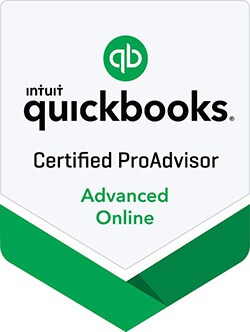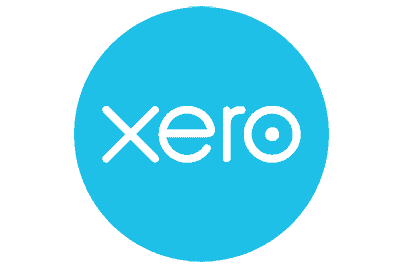By Ashley Preen
April 16, 2019
Undoubtedly, taking the step to open your own business is exciting, regardless of the size or if it’s online or offline. For many business owners, that initial excitement of launching a company doesn’t seem to dwindle. Especially when you begin making sales on your Shopify store.
Shopify is an excellent platform to generate sales, but it’s also highly competitive. The latest Shopify Figures, as of February 2019 was 800,000 global sellers. Yet, there is one vital element that is often forgotten and underestimated, which can also ensure your success, and that’s bookkeeping.
Bookkeeping as intimidating and dull as it may seem is something that all business owners, particularly Shopify sellers need to succeed. Contrary to the common misconception, you still need to have a basic understanding of bookkeeping for Shopify, even if you opt to outsource to an accountancy firm (which, we’ll be talking about later). Now, you have already taken a huge step in launching your e-commerce store. Also, we are sure that you’ve experienced the highs, the middle where nothing seems to happen as well as the lows. Perhaps your Shopify store has started to generate a lot of sales, but more sales = more paperwork. In fact, in May last year, Shopify reportedly $55 billion sales, across all of their merchants. So, learning about accountancy for Shopify, including your option is essential.
Sadly, leaving your paperwork and record of sales is something that many owners leave until the last minute, which could be their own undoing. The age-old saying, “Give a man a fish, and he’ll eat for a day. Teach a man to fish, and you’ll feed him for a lifetime,” comes to mind. However, what if the “man” doesn’t know what to do with the “fish” once he’s caught it?

Now, it may be tempting to leave your fishes (in other words your sales) in a safe place until it’s time to submit your taxes. Our point is, yes the easy option is to store your invoices/receipts and pass them to your accountant. It’s very tempting, but having an understanding of your financial management, even if you outsource is crucial if you want to continue to grow. Considering the vastly competitive e-commerce market in general, not just Shopify, you need to ensure that your hard work doesn’t go to waste.
Therefore, if you want to continue growing and expanding your business, it is essential that you understand how to track, manage and maintain your finances accurately. Since improper and inaccurate management of your finances can hinder your success, and in some cases result in your company failing. In fact, research shows that 58% of new start-ups fail[ after the first four years because they struggle in finance management.
So, if you don’t want to become part of this statistic, keep reading. Don’t worry if you feel confused about how you should be bookkeeping for Spotify! As this blog will hopefully provide you with some clarity on where you need to start accounting for Shopify, along with a few helpful online accountancy options.
Now, we are going to look at the three key elements, which are integral to keep you Shopify businesses’ finances healthy and on track.

1. Bookkeeping: This task is the daily, weekly and monthly tracking of your sales and any transaction. For instance, if you purchase any materials or services from third parties or manufacturers. Essentially, it’s keeping up to date, accurate and clear records of all of your expenses and sales. So, don’t forget to record if or when you take a personal wage. Many Shopify sellers tend to use online bookkeeping sites or apps, as mentioned earlier, QuickBooks even has integration with the Shopify App or site.
2. Record Keeping: The aptly named tasks is ensuring that all of your documents, receipts, invoices or sales reports are organised correctly. There are some great tips on Shopify for organising your records. If you’re quite unorganised, which many of us are you need to find a system that works for you. If your records are organised and well-maintained, it makes bookkeeping and accountancy far easier, efficient and accurate.
3. Accountancy: So, you may think that if you have an accountant, you don’t have to worry about this element. Although, having an outsourced accountant, either online or an office-based firm is recommended, having a basic understanding of your accounts will allow you to interpret your sales, transactions, cash flow and budget more efficiently. This element is something that you can easily outsource, and there are some great accountancy firms out there, that are high-quality but cost-effective[.
Next, we are going to take a look at the differences between the three tasks, as well as some great outsourcing options. Hopefully, by the end of this article, you will feel more relieved and have a better understanding of finding the perfect way for you to manage your records and bookkeeping for your Shopify store.
Bookkeeping for Shopify is the process that you use to record and organise your finances on a daily, weekly, monthly and yearly basis. The general bookkeeping tasks are:
The list above is just a few tasks involved in bookkeeping. Although bookkeeping is necessary, it does involve aspects of basic accountancy, which is why many e-commerce and business owners prefer to use online software, like QuickBooks and Xero, as well as a firm to do their accounting for Shopify.

Although, it seems like there’s a lot involved when it comes to bookkeeping, if you do it accurately and frequently, you will benefit when it’s time to file your taxes. Not only that bookkeeping, when you have the right system or online service in place can allow you to secure your finances, especially when you are looking to expand. If you want to grow your small Shopify business eventually, if you have well-organised books, you can utilise these if you ever need to apply for loans or even as part of your investment pitch. Another clichéd saying comes to mind, “You have to speculate to accumulate.” When the time comes for you to expand your horizons and branch out further than Shopify, you can use one of your greatest assets, and those are your books.
Moreover, if your books are well maintained and integrated correctly, it will give you a clearer picture of the entire financial health of your store. You will be able to make accurate quarterly predictions, recognise any errors. Arguably, the most important advantage is that you will have a transparent understanding every day of where your Shopify is financial. You will be able to have a better sense of where you may be over or underpaying, such as your packaging or material costs may be too high, and you are only just breaking even.
We know that once you start seeing those sales numbers increasing, and the excitement you get from a new order is amazing. However, if you don’t know where you are up to with your costs and expenses, you may end up struggling to breakeven in the long run. Hopefully, you can now see the benefits of excellent bookkeeping. However, if you would still like some additional guidance with your bookkeeping, using a CPA (Certified Public Accountant) or Chartered Accountant[ to help manage your books is also a great option.

So, now we have covered the importance of bookkeeping for Shopify, and the elements bookkeeping involves, we’d like to show you how you can get started. So, here’s our four steps for how you can start bookkeeping. Alternatively, if you’ve already been bookkeeping, these steps may help you find a simpler way or to improve your existing system.
If the concept of bookkeeping wasn’t already confusing, there are two methods you can use, single-entry or double-entry, or you can have a mixture of both. So, you may be feeling slightly overwhelmed, but don’t worry we’re here to help. When it comes to selecting which accounting structure you want to use, it generally depends on the complexity of your finances. However, the great thing about being a Shopify merchant is that you’re sales pay already has an integrated single-entry system. So, you’ve already been using this system, even if you didn’t realise that this was the case. Let’s briefly dissect the difference between the two methods.
Single Entry: This method, is probably the one you should be using if your products or services are only sold via Shopify. Generally, this system is used by most new businesses, especially as a start-up when the transaction isn’t as regular. So, a single entry is basically what it says on the tin, you either mark the entry as an output (expenses) or input (revenue). Then, when it comes to entering your capital or inventory, you can approach this a little more casually. The key point that we would like to make is that your expenses and revenues are the ones that you need to do continuously. Compared to the double entry method, is that it is far simpler. Therefore, if you want to take complete ownership of your books, we recommend using this system.
Double Entry: Now, this method is far more complicated and robust. If you’re using this system, you will need to record all of your books twice. Although it is a little more complicated than the single entry system, it can provide you with a lot more information. Moreover, this system should be implemented when you are starting to expand your business and gain more transaction. The books created using a double entry system, are generally what you would present to potential investors or a bank if you’re looking for a loan.
We strongly recommend that if you’re only just starting to bookkeeping for your Shopify store, that you try the single entry system first. However, you can have the best of both worlds. As you can use a chartered accountant firm to manage the double-entry system, while you maintain your daily single entry system. As mentioned, if you are not one for paperwork, and you’d rather stuff your receipts/invoices in a shoe box, then an online service may be perfect for you, or even an accountancy firm. There are many options out there, besides the D-I-Y bookkeeping, which we’ll be telling you about later on.
If you do not have to maintain your records or have a good organisation system, your hard work in step one could go to waste. The best advantage of keeping good records is that it will benefit you when it’s time to submit your taxes to HMRC. Your records ensure the validity of the data that you have recorded in step one. So, we recommend that you store and record all supporting evidence, such as invoices or receipts. But, unlike step one, there’s no right or wrong way to keep your records. Our key recommendation is to find an organisation system that works for you.
As you now know, bookkeeping primarily involves recording and tracking all of your finances. You can do this either on a spreadsheet, using one of the methods in step one, online integrated accountancy software, or even with a pen and paper. Like step two, if you want to have the best bookkeeping skills, it’s finding a system that works best for you. Recording and storing all of your transactions can be tedious, which is why QuickBooks or Xero can speed this process up. In this step, you should be entering all of your purchases and sales. The minimal reporting we recommend is that you track all of your clients, vendors/manufacturers and the dates of these transactions.
This step is possibly the simplest if you have the right systems in place. If you have an existing awareness of debits and credits, you’ll have no issue with this step. So, this is more to do with accounting for Shopify. Generally, you will break each transaction into five areas:
1. Assets
2. Liabilities
3. Equity
4. Revenue
5. Expenses
The great thing about this step is that you will be using basic accountancy skills, which will help you to create a clearer picture of the stability of your business. Moreover, you have a lot more flexibility when it comes to categorising your books. However, the crucial step into making this system work is finding a method that works best for you and your business. If you have never categorised or dissected your transaction before, then you can seek guidance from a charted accountant or CPA to discover a smooth system. Generally, most small business owners opt to use an accountant to generate this step. But it is our recommendation to have a simple and basic system so that you can pass this to your accountant. Your accountant will then check if you have a tax return due if you’re overpaying as well as generating a clear end of year report.
When you first start a new venture, it is exciting and overwhelming. However, there is software out there, which can help automate and generally make bookkeeping far easier. Our key point is that you don’t want to commit to an additional expense (software) if it doesn’t suit your needs or the needs of your business. Although, we did some digging and the two most used integrated accountancy for Shopify merchants were QuickBooks and Xero. The good thing is that both of these services offer a free trial, so you have the chance to test both of them out and decide if they will make your life easier, or if the D-I-Y approach is more beneficial.

This accountancy software is primarily used by smaller Shopify businesses and self-employed individuals. It has an easy to use interface, and if you struggle with the organisation, it could be a beneficial option. QuickBooks allows you to organise your data simply and easily, and if you have an accountant, you have the option to share your records with them directly. QuickBooks also has dedicated integration accountancy for Shopify, so it’s great if you want to access your records if you travel or work remotely.

This is a robust online accountancy software, and it is mainly used by larger sellers or businesses. The great benefit of this software is that it has specific e-commerce solutions, which means you can have a complete overview of your operations and/or finances on your dashboard. Also, with this software, you can manage, track and synchronising all of the data with any other apps that you may use to help with your bookkeeping. Xero, compared to QuickBooks has a lot more features. Although you may have a small business, you may prefer this software over QuickBooks. The great thing is you can get to know your software as your company grows.
We hope that you are now aware of the importance and benefits of bookkeeping for your Shopify store. Moreover, you should now have a better understanding of the steps and processes involved. However, the bottom line is finding a system or online software that works for you, to ensure that you can have a flourishing and lucrative business. As your business grows, you will reach a point where you will need an accountancy firm to assist in the management of your financial records.
If you feel unclear on any aspect involved in bookkeeping,
or you would like the assistance of an accountancy firm that wants to help you
grow your business. Speak with one of our knowledgeable professionals at Pearl
Accountants today.